Hundreds of Thousands Turn Out for Peaceful Hong Kong Protest
Organizers say at least 1.7 million pro-democracy demonstrators showed up in heavy rain for a rare calm weekend in the Chinese territory.HONG KONG—Hong Kong streets were turned into rivers of umbrellas on Sunday as hundreds of thousands of people marched through heavy rain down a major road in the Chinese territory, where massive pro-democracy demonstrations have become a regular weekend activity. Organizers said at least 1.7 million participated, though the police estimate was far lower.
The assembly was peaceful, with no reports of violence, making for a rare calm weekend in a protest movement that has been marked by violent clashes with police. Law enforcement officers kept a low profile, with no riot police seen from the procession’s main routes. When stragglers convened outside a government complex in the late evening, other protesters urged them to go home.
Demonstrators who were shining laser pointers at a government building were convinced to leave, prompting applause from others in the group.
“We hope to see whether the government gives a response to this peaceful protest,” said Michael Leung, a 24-year-old who was ushering his fellow demonstrators away. “If we get a negative response, we cannot control the next (gathering).”
Organizer Bonnie Leung of the Civil Human Rights Front said earlier in the day that she hoped there would be no “chaotic situations.”
“We hope we can show the world that Hong Kong people can be totally peaceful,” she said.
The Civil Human Rights Front had organized three previous massive marches in Hong Kong since June. The movement, however, has been increasingly marked by clashes with police as demonstrators vent their frustrations over what they perceive to be the government’s blatant refusal to respond to their demands.
“Peace is the No. 1 priority today,” said Kiki Ma, a 28-year-old accountant who participated in the march. “We want to show that we aren’t like the government.”
While police granted approval for the rally, they didn’t approve an accompanying march. Demonstrators nevertheless fanned out and filled the streets, as there was not enough space at the designated assembly area.
Public transit trains did not stop at stations near the assembly because of overcrowding.
Jimmy Shan of the Civil Human Rights Front said the group estimated that at least 1.7 million took part in the rally. He said the figure did not include those who were not able to make it to Victoria Park — where the march began — due to traffic constraints.
Police, whose crowd figures are generally lower than the organizers’ estimates, said the turnout at the assigned location and during the designated time period was 128,000. Many protesters, however, did not follow the pre-approved guidelines laid out by the authorities.
In Beijing, You Wenze, a spokesman for China’s ceremonial legislature, condemned statements from U.S. lawmakers supportive of Hong Kong’s pro-democracy movement.
You called the lawmakers’ comments “a gross violation of the spirit of the rule of law, a blatant double standard and a gross interference in China’s internal affairs.”
He said that Hong Kong’s 7.5 million people and the Chinese population as a whole rejected the actions of a “very small group of violent protesters” as well as “any interference of foreign forces.”
You did not mention any specific lawmaker, but numerous U.S. senators and Congress members, including House Speaker Nancy Pelosi, have affirmed the U.S. commitment to human rights and urged Hong Kong’s government to end the standoff.
Congress also has the power to pass legislation affecting Hong Kong’s relationship with the U.S. in ways that could further erode the territory’s reputation for stability and rule of law. That includes the recent reintroduction of the Hong Kong Human Rights and Democracy Act in Congress, which would among its other provisions require the secretary of state to issue an annual certification of Hong Kong’s autonomy to justify special treatment afforded to the city.
More directly, President Donald Trump could simply issue an executive order suspending Hong Kong’s special trading status with the U.S., a move that could have a devastating effect on the local economy at a time when Beijing and Washington are engaged in a bitter trade war.
A former British colony, Hong Kong was returned to Beijing in 1997 under the framework of “one country, two systems,” which promised residents certain democratic rights not afforded to people in mainland China. But some Hong Kongers have accused the Communist Party-ruled central government of eroding their freedoms in recent years.
The protest movement’s demands include the resignation of Hong Kong leader Carrie Lam, democratic elections and an independent investigation into police use of force.
Harley Ho, a 20-year-old social work student who attended Sunday’s rally, said protesters were undeterred by the rain and would not rest until their demands were met.
“We will stand here, we will take action until they respond to us,” she said. “In the rain, our spirit becomes stronger.”
Members of China’s paramilitary People’s Armed Police force have been training for days across the border in Shenzhen, including on Sunday morning, fueling speculation that they could be sent in to suppress the protests. The Hong Kong police, however, have said they are capable of handling the demonstrations.
___
Associated Press journalists Ken Moritsugu, Yves Dam Van and Phoebe Lai in Hong Kong, Dake Kang in Shenzhen, China, and Christopher Bodeen in Beijing contributed to this report.
Your support matters…Independent journalism is under threat and overshadowed by heavily funded mainstream media.
You can help level the playing field. Become a member.
Your tax-deductible contribution keeps us digging beneath the headlines to give you thought-provoking, investigative reporting and analysis that unearths what's really happening- without compromise.
Give today to support our courageous, independent journalists.

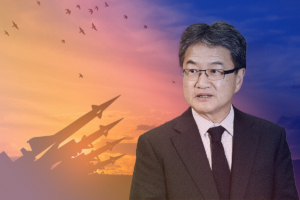
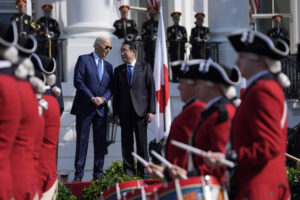
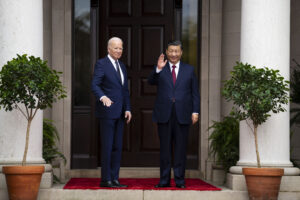
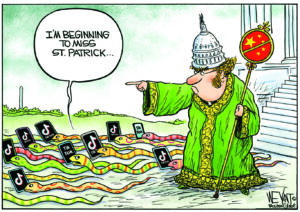
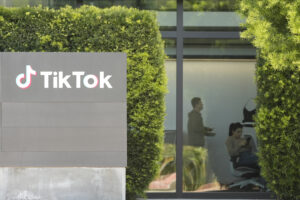
You need to be a supporter to comment.
There are currently no responses to this article.
Be the first to respond.